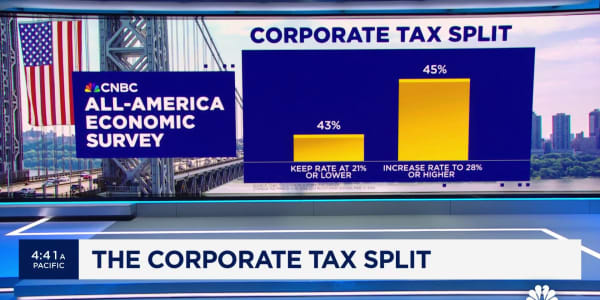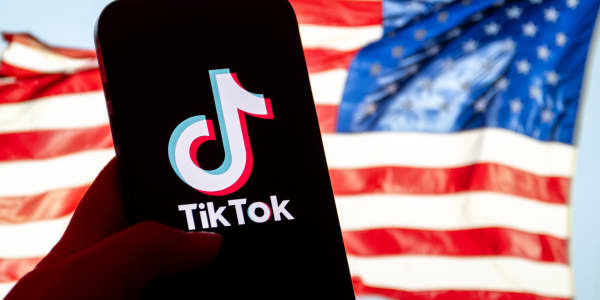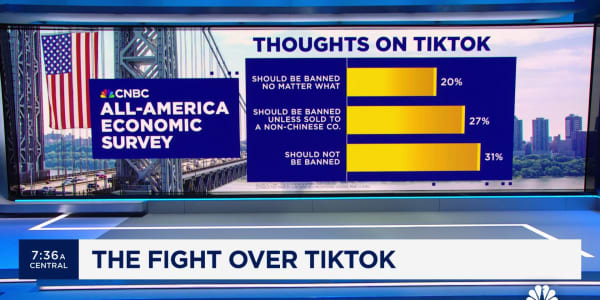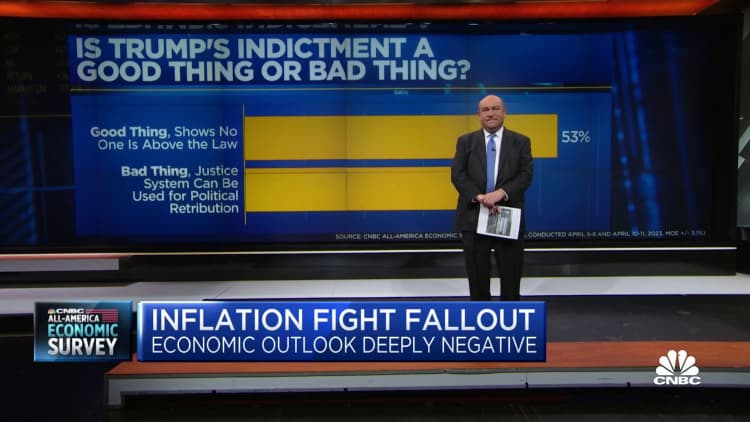
Amid persistent inflation, higher interest rates and recession worries, Americans have never been more negative about the economy, according to the latest CNBC All-America Economic Survey.
A record 69% of the public holds negative views about the economy both now and in the future, the highest percentage in the survey's 17-year history.
The survey of 1,000 people nationwide, with a margin of error of +/-3.1%, found that about two-thirds of Americans say their wages are falling behind inflation, and two-thirds say the nation is headed for recession or already in one.
The fallout from these negative views is hitting President Joe Biden's approval rating.
His overall rating fell by 2 percentage points to 39% and his disapproval rating rose by a point to 55% compared with the November survey.
Americans disapprove of Biden's handling of the economy by a 62% to 34% margin, a deterioration from the 57% to 38% margin in the last survey. It was the second-worst reading of his presidency on the economy.
Widespread disapproval
Biden lost support from several key groups.
Overall approval from Democrats dropped 2 points to 77% compared with a year ago and by 9 points for independents to just 27%.
"It's clear that as much as there is a partisan overlay to people's attitudes, everybody is also feeling the squeeze including Democrats and that's depressing numbers with the base,'' said Jay Campbell, partner at Hart Research, the survey's Democratic pollster.
The only silver lining, he said, is Biden has time to shore up his base before the next election.
"One group that I think is especially important to keep an eye on is women 18 to 49, a very important part of the Democratic coalition,'' said Micah Roberts, partner at Public Opinion Strategies, which serves as the survey's Republican pollster. "They have they've seen a massive drop in terms of their economic approval." The rating for that metric dropped 13 points compared with last quarter to 34%.
There were a few bright spots in the data.
Despite the negative views on the economy, 63% of employed Americans are not worried about losing jobs, up 5 points from November. And 37% of respondents expect their wages to increase in the next year, a bit above the average of the past several years.
Yet most Americans don't feel their wages allow them to keep up with inflation.
Just 5% say their household income is growing faster than inflation, 26% say it's keeping pace and 67% report they are falling behind.
Changing behavior
Because of inflation, large majorities say they are altering their spending and lifestyles.
Fully 81% of respondents say they are taking some action, such as spending less on entertainment, traveling less or using savings to pay for purchases.
The survey found that the effects are not spread out equally.
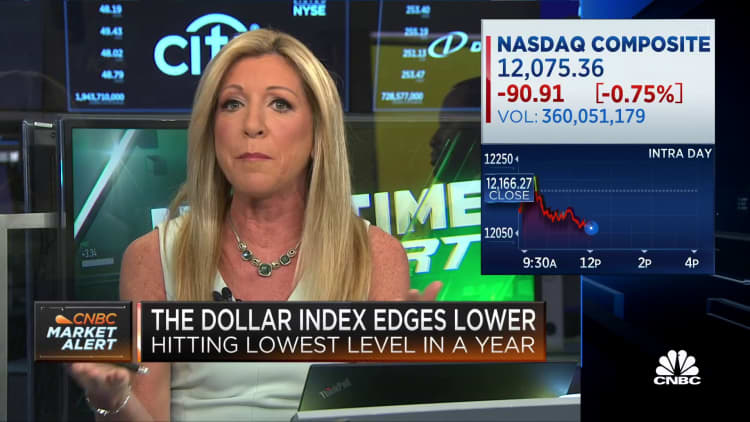
Roughly three-quarters of self-described working-class Americans say they are cutting back on entertainment and eating out to economize due to inflation; that compares with 54% of upper-middle-class Americans.
Some 51% of the working class say they are working more to make ends meet, compared with just 18% of the upper middle class. Also, 24% of Black Americans say they are hit hardest by high housing prices, compared with 12% of white Americans.
Overall, 54% of Americans said the rise in food prices had affected them the hardest, a percentage consistent across racial groups, political party and income, though it appears to be more acute for rural compared with urban dwellers and for women compared to men.
The torrent of negative economic views spills over into American views on the stock market.
Just 24% say now is a good time to invest in stocks, the lowest reading in the survey's 17-year history. The prior record was last quarter at 26%.
But 1 in 5 adults have taken some action to benefit from higher rates, either moving bank accounts, buying a money market fund or purchasing a CD. A majority of Americans say they are less likely to buy a car or a new home due to higher interest rates.
Correction: Pessimism on the economy has hit a new high. An earlier headline was incorrect.



